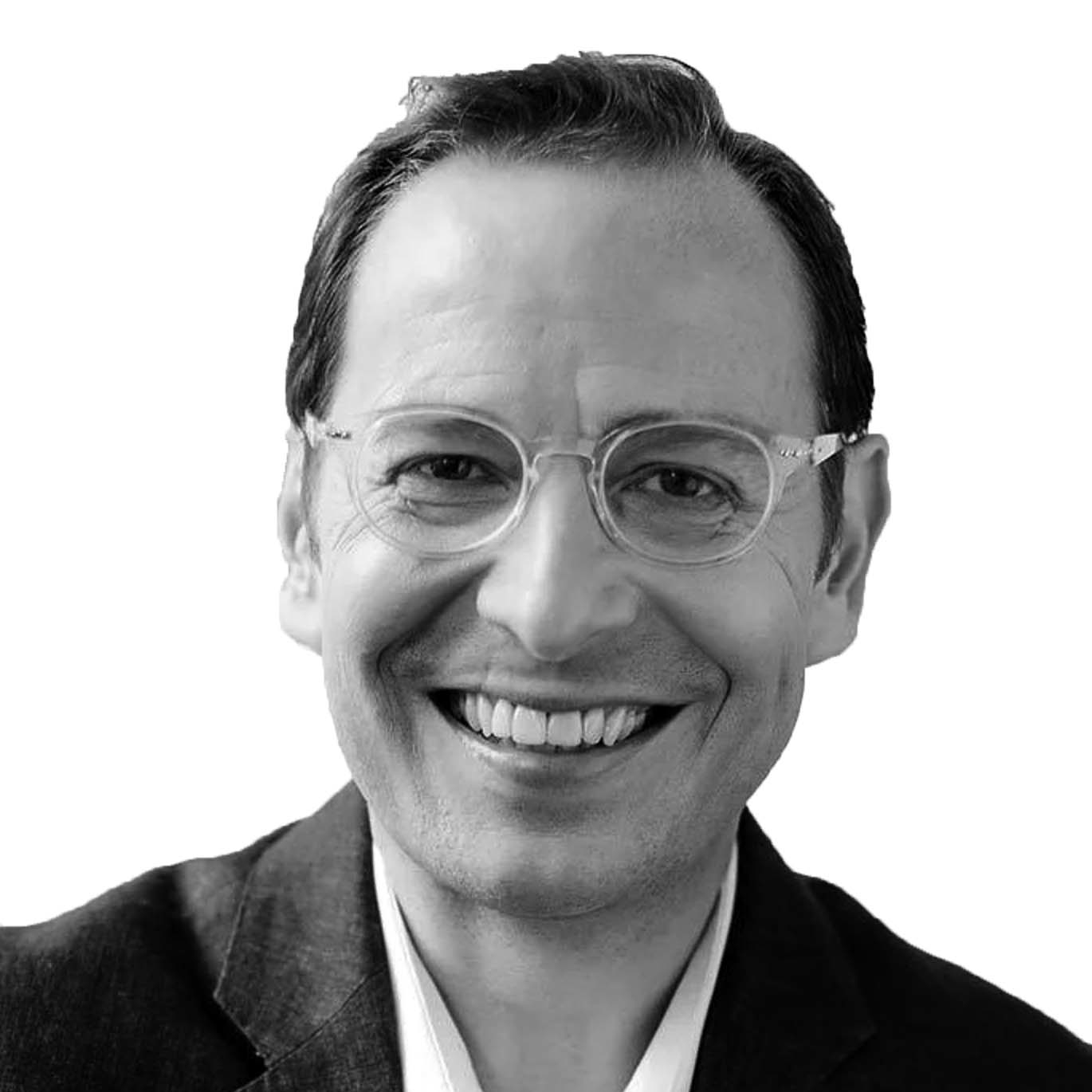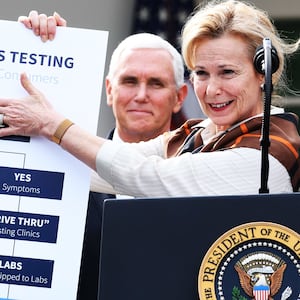Every June—Pride Month—I powerfully remember being at the bedside of my dying partner, Eddie, where I made a promise. It was the early 1990s, when HIV/AIDS was killing gay men and people of color in New York. We were all scared, and the person I feared for the most was Eddie.
I loved him dearly, a jazz musician who brought new melodies into my life. At age 35, he was dying of AIDS. In his final days, Eddie asked me to vow that he would not become just another statistic, that his death would have meaning, be redemptive, bend the arc of the universe toward justice.
I promised that I would fight for the rights of people who were suffering from HIV/AIDS, a fight we began together. I fought that fight for decades in my personal and professional life. Thirty years later, I am renewing my vow to Eddie, as the tsunami of COVID-19 spreads death and devastation. While the two pandemics are transmitted in different ways, the viruses that cause them reveal two common and tragic truths: Pandemics kill the most vulnerable and oppressed people disproportionately, and racist and bigoted people use pandemics as opportunities to blame, hate and punish. While I learned this lesson as a young gay man, it is unfortunately true for all vulnerable people.
Like HIV/AIDS, the COVID-19 pandemic is mapped onto a world already riven with poverty, racism, sexism and homophobia. What we learned from the early days of battling HIV/AIDS is just as true today: To stop a pandemic, we must fight ceaselessly on multiple fronts. We must insist on science-based public health solutions for all people, defend human rights and silence bigots.
As they did in the early days of the HIV/AIDS pandemic, bigoted leaders around the world are using the COVID-19 pandemic to scapegoat and mistreat minorities. In late March, Uganda’s security forces stormed a shelter for LGBTQ youth and imprisoned 23 residents, accusing them of spreading COVID-19. In India, Muslims—a minority of 200 million people—are being blamed for the spread of the virus, resulting in violent beatings and harassment.
For those of us who lived through the AIDS crisis, this is hauntingly familiar. After Eddie died, I worked as a human rights attorney in the 1990s for Gay Men’s Health Crisis, the first HIV/AIDS organization in New York. We saw immigrants, injection drug users, Haitians and others become the targets of vicious scapegoating. The United States denied visas and citizenship rights to HIV-positive individuals, slamming America’s doors shut to adults and children desperately needing refuge. That ban turned recent immigrants into pariahs, subject to suspicion and discrimination. Over many years, and with many allies, we fought the HIV ban and won—a victory I dedicated to Eddie.
As this ghastly COVID-19 pandemic roars through the developing world, brave activists with whom I work today are defending the most vulnerable. And these grassroots leaders are drawing on another powerful truth that arose during the HIV/AIDS pandemic, when groups like ACT UP (the AIDS Coalition to Unleash Power) found their voices: Advocacy matters and saves lives. Pride Month, after all, commemorates the Stonewall riots, initiated by some of the most marginalized members of the LGBTQI+ community—trans women of color—in protest of police brutality in New York City in 1969.
And while we have come a long way in the fight for LGBTQI+ rights, we must never forget that homosexuality is still a crime in nearly 70 countries and punishable by death in 11 countries. In the global south, where some of the toughest anti-LGBTQI+ laws exist, new attacks on LGBTQI+ people are today being fed by the spread of COVID-19. Grassroots activists on the ground are fighting back.
In Uganda, legal advocates for LGBTQI+ people went to court and freed the youth who were jailed and abused for nearly two months on trumped-up charges related to spreading COVID-19. These advocates are now working to bring the perpetrators to justice.
In India, an advocacy group for LGBTQI+ people launched a relief campaign to deliver groceries and medical supplies to trans people, including some who are HIV+, because trans people are consistently overlooked by mainstream relief efforts.
In the Dominican Republic, a coalition of organizations is directing food and support to the much reviled and mistreated Dominicans of Haitian descent, a stateless community whose members have lost jobs as a result of the pandemic.
These activists are members of marginalized groups living under the grip of governments that, even in normal times, thwart their human rights.
In the midst of this struggle by activists in the developing world, the United States has a key global role to play in stopping this pandemic and ensuring that LGBTQI+ people are not left behind. That’s why we’re urging that all U.S. COVID-19 international relief packages and future foreign assistance legislation include the following measures to support LGBTQI+ people and other vulnerable populations:
- Require that all global health programming be carried out in an inclusive and non-discriminatory way;
- Remove any barriers to accessing healthcare services, including the global gag rules, which put the lives of people across the world at risk;
- Provide robust funding to maintain and strengthen global health programs, including those related to HIV treatment and prevention and family planning and reproductive health;
- Require reporting on human rights violations against LGBTQI+ and other vulnerable communities through the duration of the COVID-19 pandemic, and
- Increase funding to locally-led organizations by providing support to their communities during this challenging time.
As we advocate for U.S. policies to promote global public health, we cannot ignore the scourge of inequality in our own nation. It is impossible to fight for a more humane world without addressing—and fighting against—racism and inequities here at home.
These fights, while different in some respects, are all interconnected. While we stand up to defend black bodies and lives in American today, let us remember that among them are black LGBTQI+ Americans, who face multiple oppressions.
In keeping my promise to Eddie, I spend my days fighting this convergence of pandemics and their intersection with racism, marginalization, poverty, stigma and human rights violations. Together, we must do all we can at home and abroad to ensure that every person—including the most vulnerable—is treated not as a statistic, but as a person with dignity and rights.






